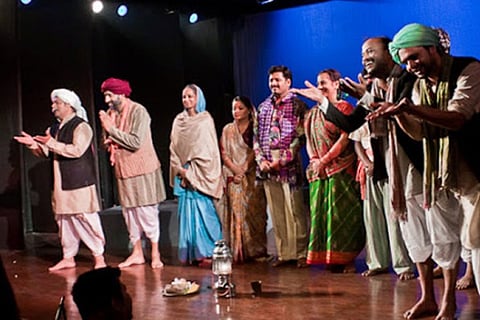

Chennai
The digital space, while accommodating in the initial months of the shutdown, is not financially feasible in the long-term, said Dharini Komal, founder of Komal Theatre, which produced six short films and online shows on YouTube and other social media platforms during the shutdown.
“When it comes to live shows, we would at least break even owing to ticketing costs and sponsorships. However, we are producing online shows at a loss. Not only is there a poor monetisation system on online platforms, but also sponsors are unwilling to fund online shows as they are unsure about the reach and the reception of these shows,” she said.
On March 12, Theatre Nisha held their first physical performance after the shutdown. According to V Balakrishnan, the artistic director, the show saw full audience as per the 50 per cent capacity rule. However, while the need to see live theatre continues in the city, audiences remain stagnant.
“The number of people who were coming to see shows pre-lockdown and post-lockdown has not changed in their demographic or size. There is still no strategic change after the pandemic, and this raises the issue of sustaining local arts. Audiences play a huge role in sustaining theatre, as theatre is a place where we create communion and have discussion and dialogue on how we engage with society,” he said.
However, the pandemic has raised the issue of financial support for artistic communities. According to Hanne M de Bruin-Rajagopal, programme director, Kattaikkuttu Sangam, the return of physical shows for therukuthu artists has ensured their financial stability currently, but not in the future.
“There is a need for financial support from government entities to support organisations like ours - we try to advocate for their economic stability and rights like pension and sick leave. Application for funds in the nation is very difficult in Tamil Nadu, and most of the time, we are not supported for our operational costs. The main focus remains in classical art forms, not traditional forms,” she said.
According to Balakrishnan and Komal, spatial restrictions for practising are another concern. “We talk about arts thriving in the future, but currently, we are not even nurturing them. We need practice spaces to facilitate the arts and only afterwards can they flourish. The current spaces are expensive and have a lot of red-tape to get a slot. However, if the Chennai Corporation took efforts to open up public spaces like parks or schools which we could use at a nominal rate, it would help us artists get a space to practice and hone our art. We as theatre performers have an onus on being at our best at all times, but that is not possible without a space to do this,” he said.
Visit news.dtnext.in to explore our interactive epaper!
Download the DT Next app for more exciting features!
Click here for iOS
Click here for Android